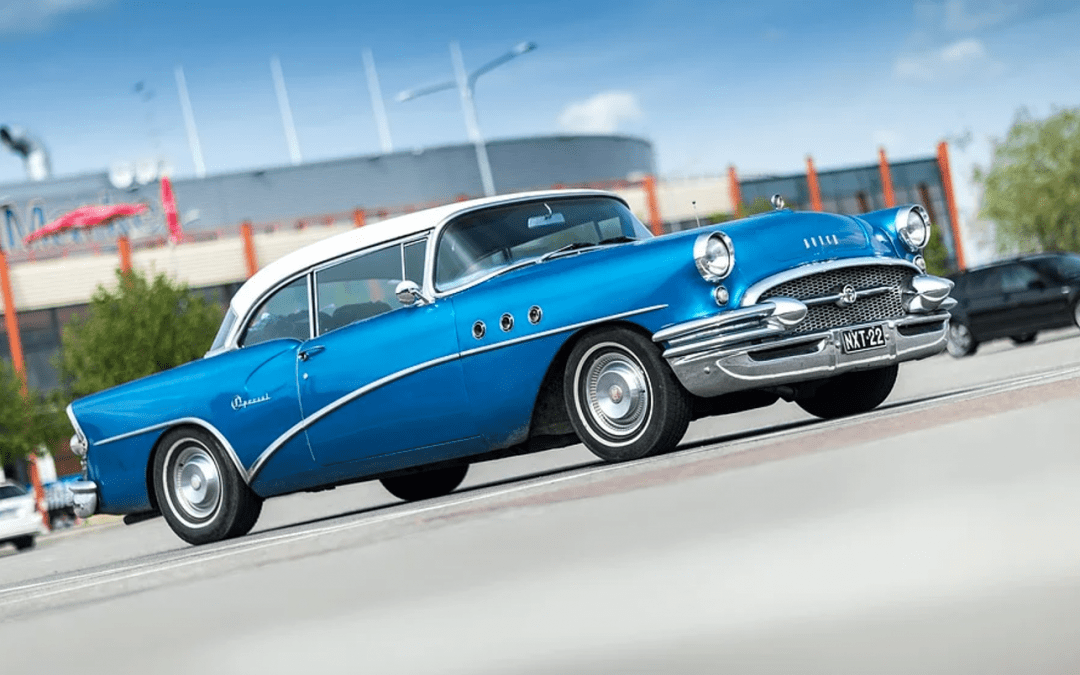Netflix popularized the cultural phenomenon of “binge-watching,” where viewers can choose from a wide variety of content to watch as many movies or shows as they want.1 To meet the “binge-watching” demand of over 86 million subscribers in 190 countries, Netflix regularly updates its streaming platform with new content.2 One of these hit shows, Comedians in Cars Getting Coffee, was the basis of a copyright infringement suit that reached the Second Circuit in 2020.3 The case posed an interesting question – who owns the copyright of the Comedians in Cars Getting Coffee pilot episode?4
Comedians in Cars Getting Coffee features comedian Jerry Seinfeld, who picks up each episode’s guest in a vintage car to engage in funny, caffeine-stimulated conversations.5 The show has featured guests such as Eddie Murphy and Barack Obama, and cars like the 1964 Studebaker Avanti.6 On February 9, 2018, plaintiff Christian Charles, a writer and director, filed a copyright infringement suit against Jerry Seinfeld, disputing ownership in the pilot episode of Comedians in Cars Getting Coffee.7 The lawsuit was filed soon after Seinfeld signed a deal with Netflix to stream the show at approximately $750,000 per episode.8
The two basic elements of a copyright infringement claim are (1) ownership of a valid copyright, and (2) copying of the original elements of the work.9 Charles’ claim disputed the first element, ownership.10 Therefore, the Southern District of New York and the Second Circuit Court of Appeals limited their analysis to the ownership element rather than the copying element.11 Charles claimed copyright ownership in Comedians in Cars Getting Coffee primarily because he allegedly created the show idea.12 Additionally, Charles’ production company helped develop the pilot episode of Comedians in Cars Getting Coffee in 2011.13 Seinfeld disputed Charles’ alleged ownership and moved to dismiss on the basis that Charles’ 2018 infringement claim was time-barred by the Copyright Act’s three-year statute of limitations.14
The evidence showed that in February 2012, Seinfeld rejected Charles’ request for back-end ownership compensation and clarified that Charles’ assistance with the pilot episode was completed on a work-for-hire basis.15 This compensation dispute, along with disagreements about production, led to a falling out between the parties. 16 Charles had no further involvement in the series and he was not credited in the July 2012 premier of Comedians in Cars Getting Coffee.17 The District Court granted Seinfeld’s motion to dismiss and held that the three-year statute of limitations period was triggered in 2012 because Charles knew, or should have known, that his copyright ownership claim was disputed.18 Accordingly, the district court concluded that the three-year statute of limitations expired in 2015, and Charles’ 2018 claim was time-barred.19 Charles timely appealed to the Second Circuit.
In May 2020, the Second Circuit affirmed the district court’s “well-reasoned” dismissal because a claim of copyright ownership “accrues only once, when a reasonably diligent plaintiff would have discovered that ownership was disputed.” 20 Second Circuit precedent dictates that when “ownership is the dispositive issue” in an infringement claim, and the “ownership claim is time-barred,” then the infringement claim itself is time-barred.21 The time-bar cannot be lifted, even if there is evidence of newly infringing activity after the statute of limitations has expired.22 In affirming that Charles’ ownership dispute was time-barred under the Copyright Act, the Second Circuit also agreed with the district court’s reasoning for dismissal. Specifically, either Seinfeld’s rejection of back-end compensation due to work-for-hire limitations or Charles’ credit omission during the commercialization of Comedians in Cars Getting Coffee was sufficient to place Charles on notice of copyright ownership in 2012.23
The Comedians in Cars Getting Coffee case stresses the importance of filing a timely copyright infringement suit, especially when the central issue is copyright ownership. Attorneys cannot rely on continuing acts of copyright infringement because the three-year statute of limitations is triggered once the plaintiff is put on notice. A thorough factual investigation of the copyright dispute timeline is necessary to determine when plaintiff’s ownership claim accrued and whether litigation can be properly initiated within the three-year window.24
- Netflix Wants the World to Binge-Watch, Bloomberg (Jan. 12, 2017), https://www.bloomberg.com/news/features/2017-01-12/netflix-wants-the-world-to-binge-watch. ↩
- Id. ↩
- Charles v. Seinfeld, 803 F. App’x 550, 550 (2d Cir. 2020). ↩
- Id. at 551. ↩
- Daniella Bondar, Every Episode of Comedians in Cars Getting Coffee Ranked, Vulture (Jul. 19, 2019), https://www.vulture.com/2017/08/ranking-every-episode-of-comedians-in-cars-getting-coffee.html. ↩
- Id. ↩
- Charles v. Seinfeld, 410 F. Supp. 3d 656, 658 (S.D.N.Y. 2019). ↩
- Gene Markin, Jerry Seinfeld’s Ex-Partner Time Barred in Copyright Dispute Over “Comedians in Cars Getting Coffee”, N.J. L. Blog (Jul. 23, 2020), https://www.njlawblog.com/2020/07/articles/intellectual-property/jerry-seinfelds-ex-partner-time-barred-in-copyright-dispute-over-comedians-in-cars-getting-coffee/. ↩
- Feist Publ’ns, Inc. v. Rural Tel. Serv. Co., Inc., 499 U.S. 340, 361 (1991). ↩
- Seinfeld, 410 F. Supp. 3d at 659; Seinfeld, 803 F. App’x at 551. ↩
- Seinfeld, 410 F. Supp. 3d at 659; Seinfeld, 803 F. App’x at 551. ↩
- Seinfeld, 410 F. Supp. 3d at 658. ↩
- Seinfeld, 410 F. Supp. 3d at 657; Seinfeld, 803 F. App’x at 551. ↩
- Seinfeld, 410 F. Supp. 3d at 659; 17 U.S.C. § 507(b) of the Copyright Act imposes a three-year statute of limitations to ensure timely adjudication of copyright ownership disputes. ↩
- Seinfeld, 410 F. Supp. 3d at 658; Seinfeld, 803 F. App’x at 552. ↩
- Seinfeld, 410 F. Supp. 3d at 658. ↩
- Id. at 660; Seinfeld, 803 F. App’x at 552. ↩
- Seinfeld, 410 F. Supp. 3d at 661. ↩
- Id. at 661. ↩
- Seinfeld, 803 F. Ap p’x at 551. ↩
- Simmons v. Stanberry, 810 F.3d 114, 116 (2d Cir. 2016); Kwan v. Schlein, 634 F.3d 224, 228–30 (2d Cir. 2011). ↩
- Kwan v. Schlein, 634 F.3d at 230; Seinfeld, 410 F. Supp. 3d at 659. ↩
- Seinfeld, 803 F. App’x at 551–52. ↩
- Dale Quisenberry, Lessons from Jerry Seinfeld’s Second Circuit Copyright Win, IP Watchdog (Jun. 24, 2020), https://www.ipwatchdog.com/2020/06/24/lessons-jerry-seinfelds-second-circuit-copyright-win/id=122757/. ↩

